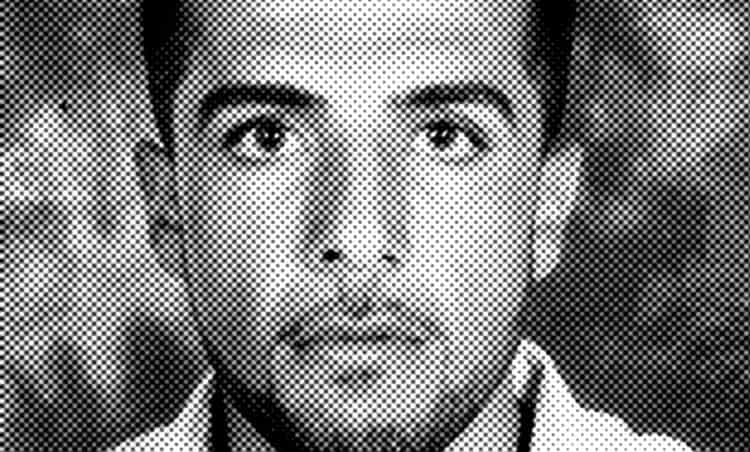Account of the Disappeared Mohammad Jawdat Samhani by the State Security Branch
The Disappeared Mohammad Jawdat Samhani, born in 1977 in Shelf village located in al-Kurd Mountains in Latakia countryside, was a government employee, a worker, in the Directorate of Agriculture in Latakia, and held the preparatory certificate, married with six children they are; (Riham13, Neveen12, Ahmed10, Eman 8, Amjad 7, and Taghreed 6 years old).
On 5 October 2011, a patrol of the State Security Branch in Latakia arrested Mohammad from his house in Shelf in front of his family when vehicles belonged to Branch surrounded the house. Muhammad and his family heard the sound of the vehicles and footsteps of the armed elements around the house, therefore, the wife hid the children in the bedroom and closed the door while she and Mohammad remained in the living room when the patrol raided the house, the wife[1], who testified to Syrians for Truth and Justice/STJ said.
Three armed men in civilian clothes stormed the house where they took off the door, entered forcibly, insulted them, handcuffed Muhammad behind his back and covered his head with his jacket; the wife tried to stop them from taking him, but they shouted at her and ordered her to be silent otherwise they will arrest her too. The elements did not search the house, and the wife went out to see her husband who he was placed in a white “Station-type” car belonged to the State Security Branch “as she was told later”. The patrol included three cars and about ten armed elements, the wife asked for the reason of Mohammad’s arrest and the elements told her that he had participated in demonstrations opposing the Syrian President Bashar al-Assad’s rule.
You may read & download the full story in PDF forma by clicking here,
Mohammad’s family attempted to keep track of his news using one of the lawyers from Latakia, who worked in cooperation with an officer in the State Security Branch in Latakia; the lawyer told them that Mohammad stayed at the State Security Branch in Latakia for about three months in which he had been beaten during the interrogation. Later, almost a year after his arrest, the lawyer told them that the court in charge of Muhammad’s case had changed to the Counter-Terrorism Court, and that he is no longer able to pursue the case because it may harm his reputation and future. The family had paid the lawyer 300,000 Syrian pounds, equivalent to $3000 at the time. Later, the family heard that Muhammad was transferred to the State Security Court in Damascus and then to Sednaya Military Prison, that was the last news about him.
The wife added:
“Later we managed to reach some intermediaries, who have links with some security officials, but they asked for large sums of money to provide us with detailed information about Muhammad and to secure a visit to him at Sednaya Military Prison, we could not trust them because many people were subjected to extortion and blackmail in this way”
With regard to the effects of Muhammad’s arrest, the wife says:
“My husband’s arrest was a shock to me, to his family and to his children in particular, he still lives in our hearts and souls, and I always keep hope in my children’s souls that he would return one day.
After my husband’s disappearance, our financial and living situation became extremely difficult as my husband’s salary, our only income source, was cut by the Directorate of Agriculture after his arrest. I stayed about three years in my house along with my children and after the Syrian Regime approached taking control of the area that we live in, al-Shelf village in al-Kurd Mountain, my children and I left the house and moved along with my parents to an area near the Syrian-Turkish border. We stayed in the asylum camps and we depended on the assistance provided by relief organizations (Ain al-Baida village camp). I never thought about marrying again since the arrest of Mohammad, I will live to raise my children who have lost kindness and care by losing their father, some of my children remember features of their father’s face but others do not remember him, they know him only through photos.”
[1] The interview on July 17, 2017, was conducted personally with Mohammad’s wife at her parent’s house in Ain al-Baida camp on the Syrian-Turkish border.












